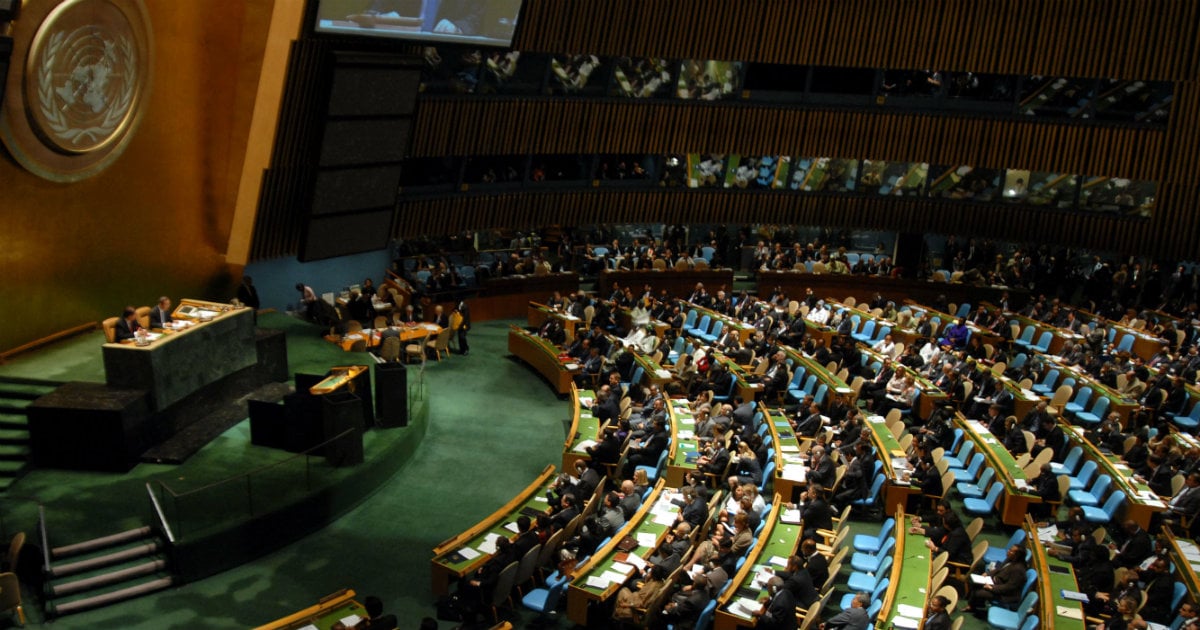
For the thirty-second time, the United Nations General Assembly voted in favor of a resolution calling for the end of the American embargo against Cuba, a policy that the Havana regime attributes to the island's increasing problems.
With 187 votes in favor, two against (the United States and Israel), and the abstention of the Republic of Moldova, the majority of member countries reiterated their support for the resolution put forward by the communist regime.
As expected, the island's Ministry of Foreign Affairs celebrated the decision on the social media platform X, noting that the world is again opposing the "blockade."
The official newspaper Granma also celebrated the achievement, a common (and mandatory) practice among state media in the largest of the Antilles.
Moldova's abstention was a notable detail, while Ukraine, which in recent years has also preferred to remain on the sidelines, was not shown on the information screen during the UN session, which has received this resolution against the embargo every year since 1992.
Last September, President Joe Biden signed the extension of the United States' economic embargo on Cuba until 2025, a measure that is part of a consistent practice by both Republican and Democratic administrations for more than six decades.
The White House released an official memorandum on September 13, one day before the law was set to expire, stating that "The exercise of certain authorities under the Trading with the Enemy Act is scheduled to expire on September 14, 2024. Therefore, I determine that the continuation of the exercise of those authorities concerning Cuba for an additional year is in the national interest of the United States."
"Therefore, in accordance with the authority granted to me by section 101(b) of Public Law 95-223, I hereby extend for one year, until September 14, 2025, the exercise of those authorities regarding Cuba, as implemented through the Cuban Assets Control Regulations, 31 CFR part 515," stated in the document signed by Biden and sent to the Secretary of the Treasury.
With this renewal, the Cuban regime will have to wait until September 14, 2025, to see if there will be any changes in the implementation of these policies, which have been repeatedly rejected by the island's government for decades, without any modifications granted so far.
The embargo, which began to be partially implemented in October 1960 in response to the nationalization of American businesses in Cuba, was expanded to its full form in February 1962.
Since then, its renewal has been a formal procedure carried out annually by 13 U.S. administrations.
The continuation of the embargo continues to generate controversy both in Cuba and within the international community, where many argue that this policy has exacerbated the economic difficulties faced by the island's population, while the regime has used it as a justification for its own ineptitude and inefficiency.
What do you think?
COMMENTFiled under: